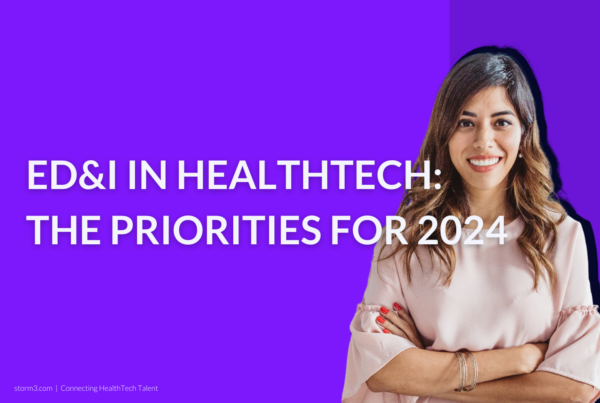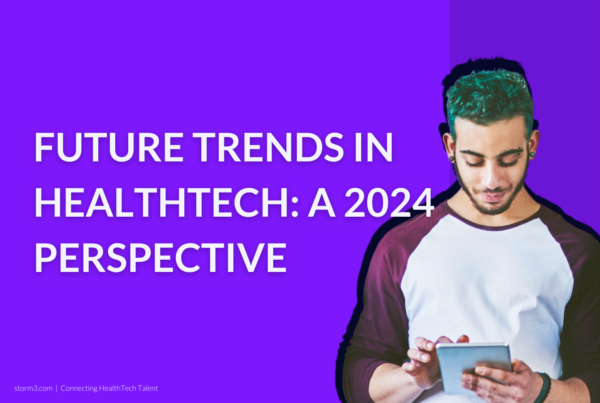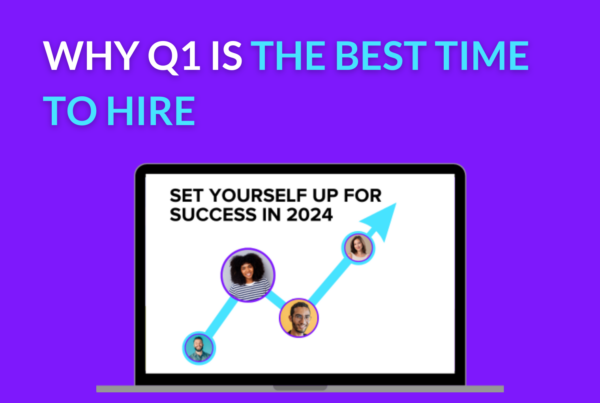The power of data and analytics is disrupting the healthcare technology landscape at a rapid pace, and it’s for this reason that the role of Chief Data Officer has been so welcomed. The popularity of the CDO among organizations has grown hugely in recent years, with a survey from New Vantage Points stating that in 2012, just 12% of companies reported having a CDO, and this number growing to 67% in 2018.
As the amount of data available to organizations expands, there is no doubt that the demand for CDOs is increasing. From fostering innovation and bringing value to data, to supporting their fellow c-suite leaders, let’s take a closer look at why your HealthTech needs a Chief Data Officer.
What Is A Chief Data Officer?
The Chief Data Officer oversees the collection, management, and storage of data across an organization whilst ensuring data quality and creating data strategies. Without this additional horsepower at the top, opportunities to boost productivity, increase revenue and innovate may never be realised for lack of focus or culpability. In a 2018 KPMG study, it was found that companies that have a CDO are twice as likely to harness a clear digital strategy, and two-thirds of such firms say that they are outperforming rivals in market share and data-driven innovation.
While there isn’t one set job description for CDOs in HealthTech, there are a number of responsibilities that would fall to the role:
- Ensure data quality, reliability and access
- Cut costs and improve margins
- Create operational efficiency
- Improve business agility
- Enhance decision-making
- Reduce risk of data-driven projects and programmes
- Ensure regulatory compliance
- Innovate
- Capitalise on Big Data opportunities
CDO Vs CIO
The role of Chief Data Officer (CDO) is fairly new, and it walks a similar path to its fellow C-suite job title – the Chief Information Officer, but it’s important to understand that there’s a difference between the two. Although both the CDO and CIO are concerned with data management, the CIO is responsible for the information systems through which data flows and is stored, and not the business responsibility of the data in them. On the flip side, the CDO is responsible for managing how the data in the systems is governed and used.
Data and information are finally being viewed and valued as enterprise assets. Like other assets which have a confirmed executive – the COO, the CFO, the CIO – data has been granted its dedicated executive in the rise of the CDO.

The Benefits Of Hiring A Chief Data Officer
HealthTechs are nothing without the data they capture and utilise. From applying meaning to data, developing strategies, and keeping data streams clean and valuable for everyone, the CDO brings a multitude of advantages to HealthTech organizations. In fact, Gartner estimates the average company loses $13.5 million a year as a result of poor data quality. The following are a few ways in which CDOs prove themselves as valuable to HealthTech organization.
They Bring Innovation:
A successful Chief Data Officer in HealthTech is part optimiser, part integrator, and part innovator. As the HealthTech market continues evolve, leading organizations around the globe are appointing CDOs to deliver data-driven growth, engagement, connectivity, productivity, and to take the reigns as chief innovators for deriving value from data.
They Keep Data Clean And Meaningful:
Data is only valuable if its clean. But with the influx of lots of data, many HealthTechs are struggling with data swamps that make every report incorrect and every estimate slightly off the mark. CDOs create clear and consistent data for all teams in the organization, ensuring that the same process is maintained by all users. As well as keeping data clean, CDOs use machine learning and various other technology to find the trends and insights CIOs and CTOs aren’t trained to uncover. From these insights, CDOs can save companies hours in production time and potentially millions in losses.
They’re A Pillar For The C-suite Team:
Through understanding the ins and outs of data, CDOs can help your CIO, CMO, and even your CFO make greater use of the data in front of them, educating them to begin using data in more meaningful ways. Data is not solely for the eyes of the CDO. Rather, CDOs are there to protect the data coming in, and to then share it widely, so as all within the organization can benefit from this accurate and valuable information.

The Future Of The CDO
For any company, there is huge value in maintaining data. In fact, having a clear data strategy and well-managed data to base decisions on is more than a competitive advantage – it’s key to a companies survival.
Fortunately, organizations are waking up to the fact that CDOs deserve a place on the board. As data culture and practice continues to grow in importance, there is huge potential for the role of CDO to grow right alongside this. Gartner predicts that by 2021, the CDO will be seen as a mission-critical function comparable to IT, business operations, HR and finance. Now is the time for organizations to elevate the role of the CDO. In this critical stage of disruption in HealthTech, data must be placed at the forefront in order to create digital and data transformations, and CDOs will be paramount in making this growth a reality.
At Storm3, we are specialist recruiters dedicated to connecting CDOs and other top c-suite professionals with HealthTech organizations across the globe. For more information on our data & analytics recruitment, have a look at our dedicated data page. Get in touch to brief our team of consultants with your hiring needs.








